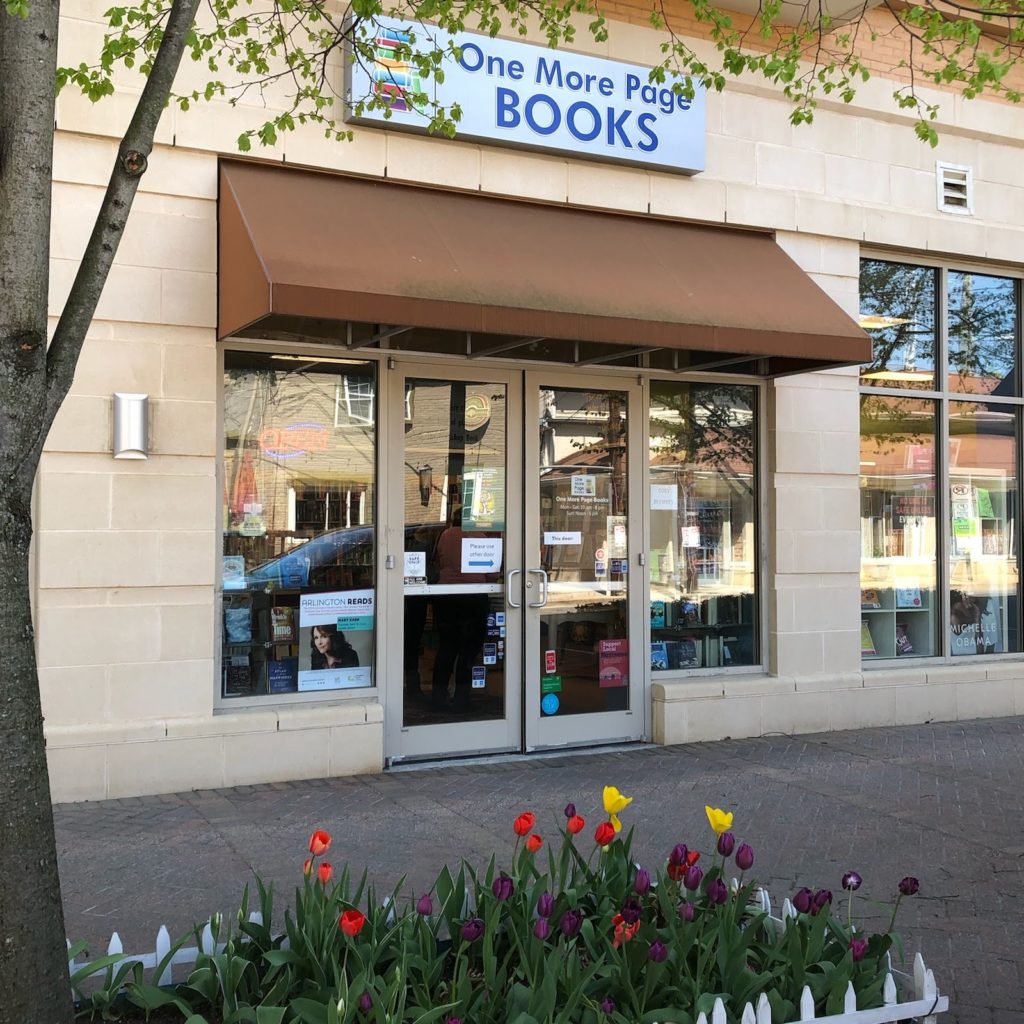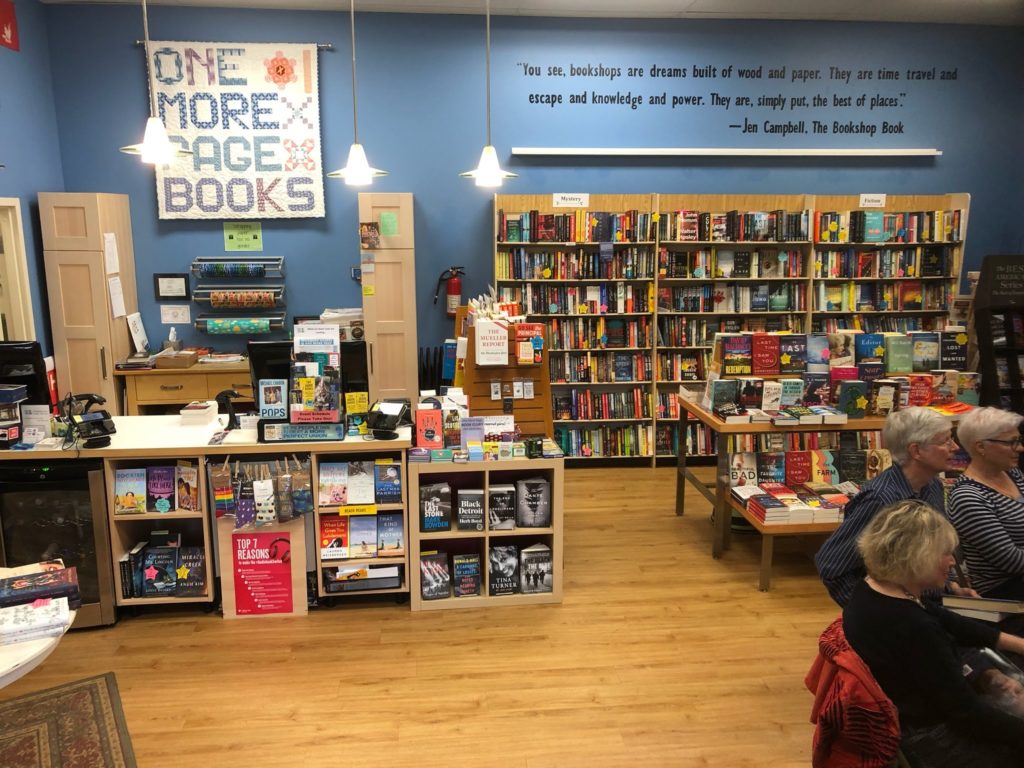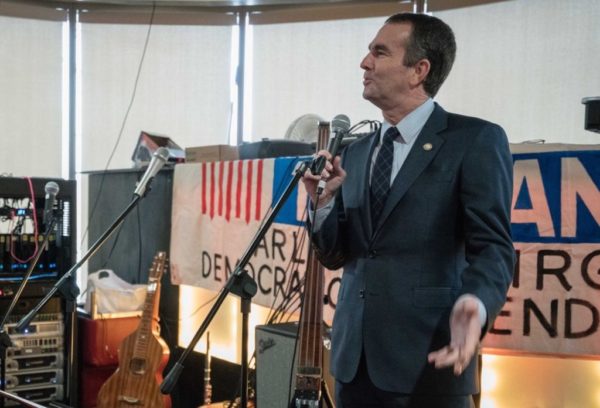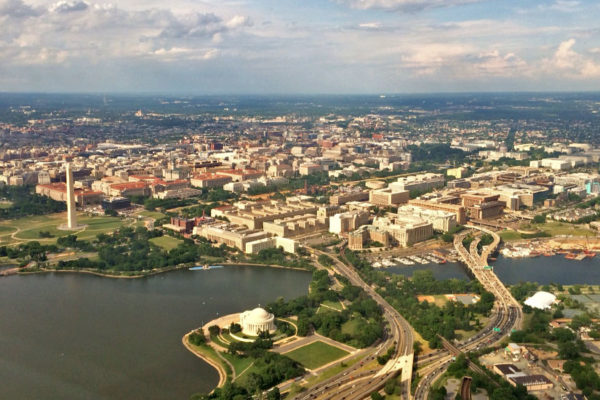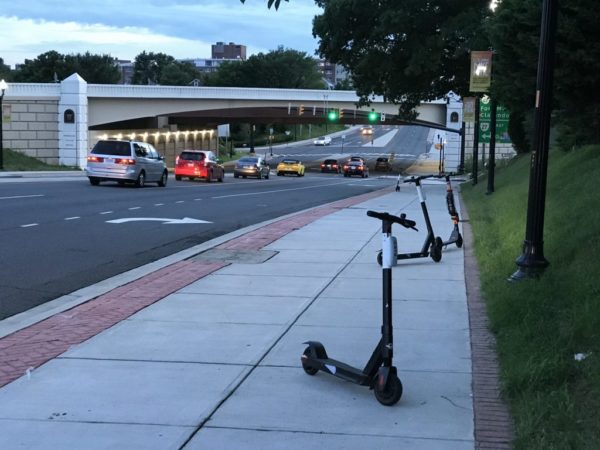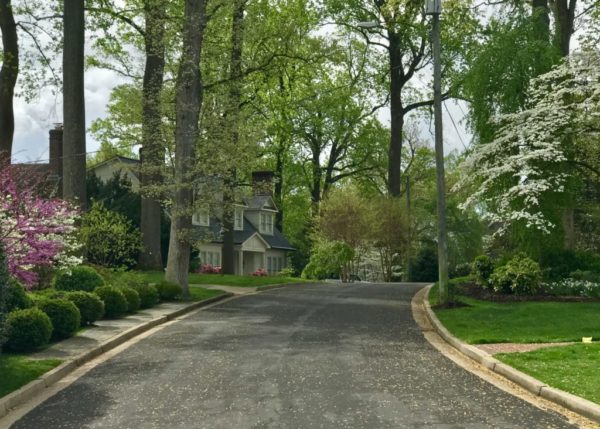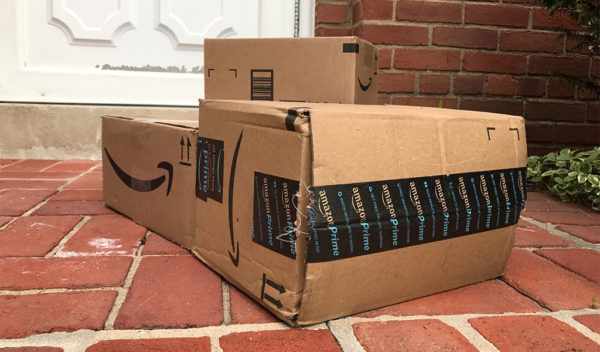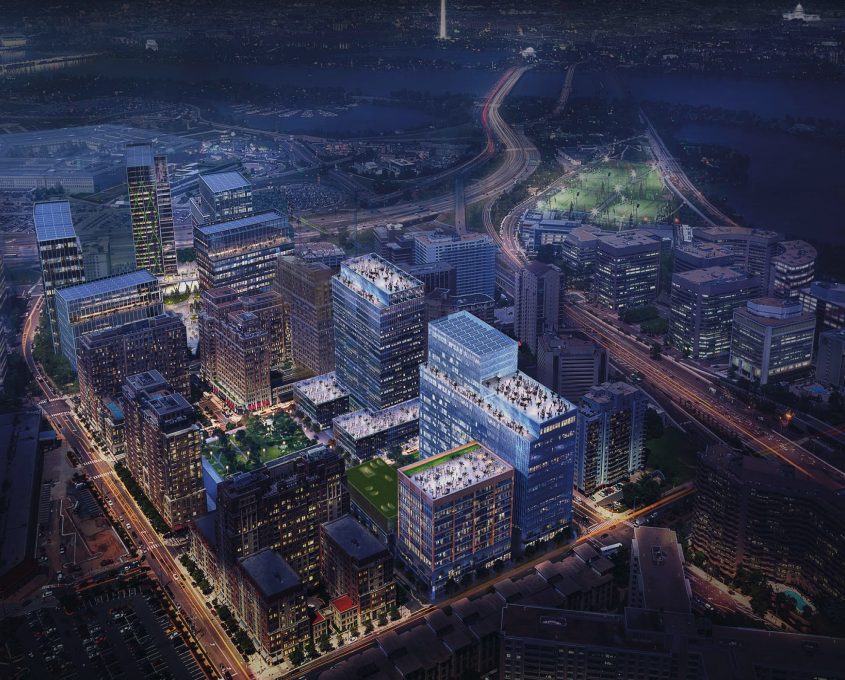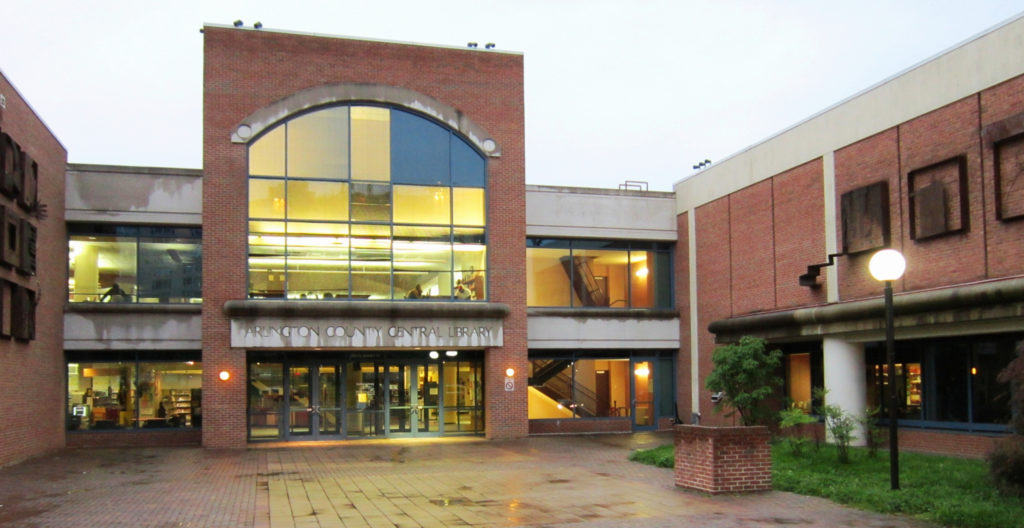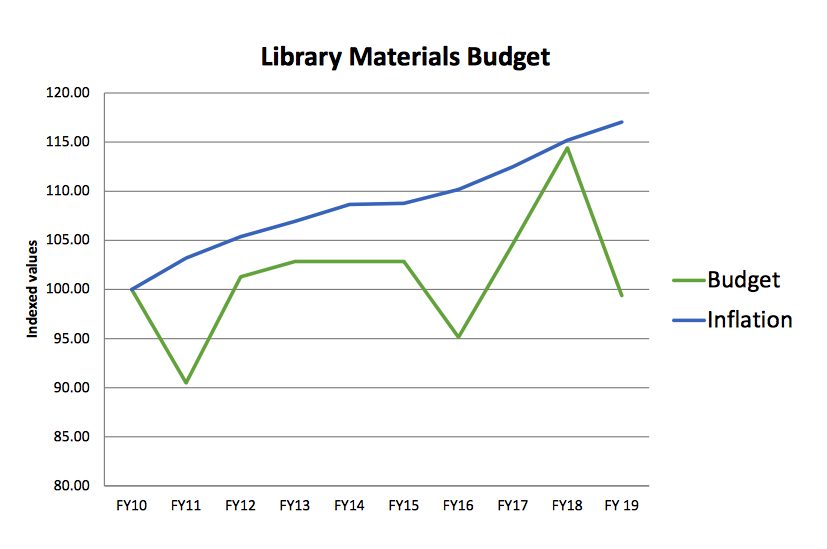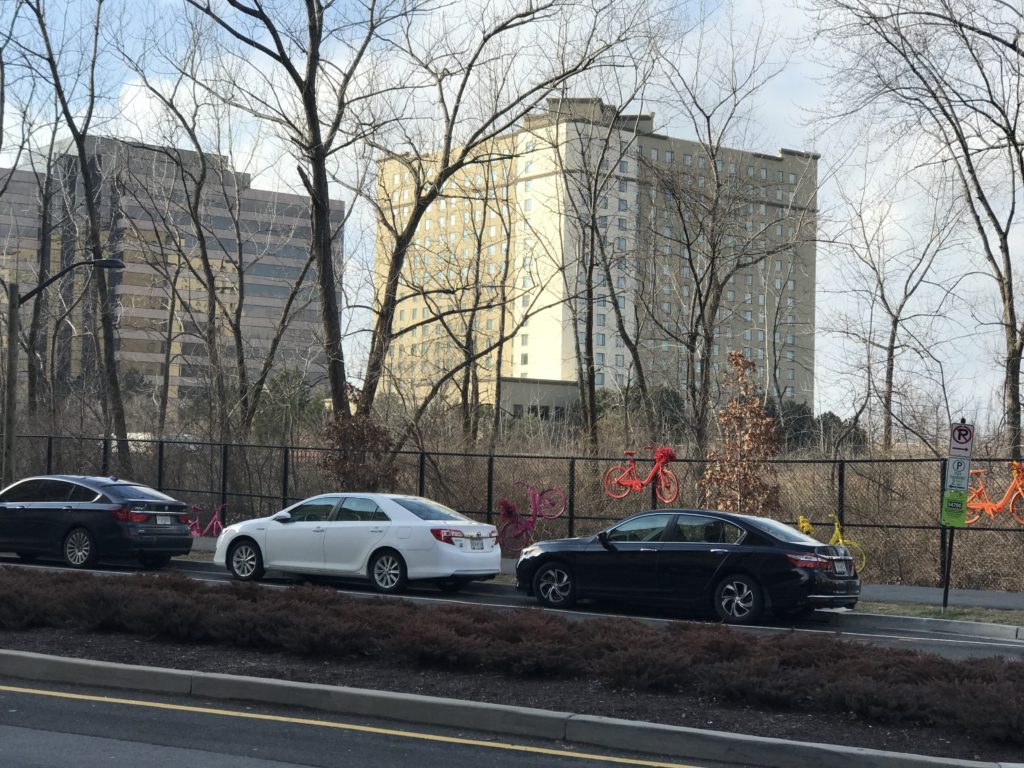A local bookstore is holding an auction to raise money after the owner says rent increased by 30 percent this year due to property tax changes.
One More Page Books, located in the East Falls Church neighborhood at 2200 N. Westmoreland Street, is hosting a silent auction fundraiser from Friday, August 2 at 6:30 p.m. until Sunday, August 18 at 5 p.m. The bookstore is currently finalizing the item list, which currently ranges from artwork and chocolates, to bike tours and book manuscript consults.
Owner Eileen McGervey said she was excited for the auction, which kicks off with the store’s regularly-scheduled wine and cheese party Friday night. She told ARLnow that customers came up with the idea of the auction, which has since gathered items like handmade shawls and a dinner with media members who cover the Capitals.
The auction was arranged after McGervey said the landlord informed her last month that the real estate taxes for the building went up significantly. The end result? A 30 percent rent increase, applicable to the current year.
McGervey said that’s a challenge for the independent bookstore not only because it operates on small profit margins, but also, “unlike other businesses we don’t have the option of raising the prices because books come with prices on them.”
The tax hike was the result of the county changing the way it calculates the value of some commercial buildings, like the mixed-use commercial condo building One More Page inhabits. The change more than doubled the assessed value of One More Page’s space — and thus also its assessed taxes — even after it was lowered on appeal.
(That’s on top of the County Board approving a real estate tax hike which increased the amount owners pay by two cents for every $100 in assessed property.)
“Unfortunately, in the case of the condominium that houses One More Page, this meant an increase in the assessed value of the property from CY 2018 of $2,351,100.00 to a CY 2019 valuation of $5,591,100.00,” Board Chair Christian Dorsey wrote in a letter to McGervey, who had asked if the Board could offer any assistance to the bookstore.
Dorsey continued:
This is indeed a large jump in the assessed value of the building. The County is bound by the Constitution of Virginia and State Code to assess all real estate at fair market value, and this methodology provides a more accurate assessment of commercial condominium values than did the previous. This methodology took into consideration the actual income and expense data submitted by the owner of the property along with similar condominiums in Arlington.
While the owner chose not to appeal the assessment with the County’s Board of Equalization this year, the owner did file an administrative appeal, resulting in a $700,000 reduction in the CY 2019 assessment, to $4,907,500. With the assessment reduction, the total tax bill for the building in Calendar Year 2019 is $56,485.00, up from $26,228.67 in CY 2018.
One More Page has been able to cover the rent raise in the past month, but at the expense of paying some of its vendors. Asking for help covering these bills is awkward, McGervey said, but better than the alternative.
“You don’t want to just be gone one day and have people not know that you could have been there,” McGervey said.
She noted that she’s now exploring the idea of a membership program to cover future rent needs.


